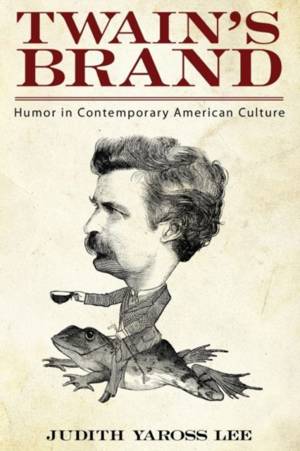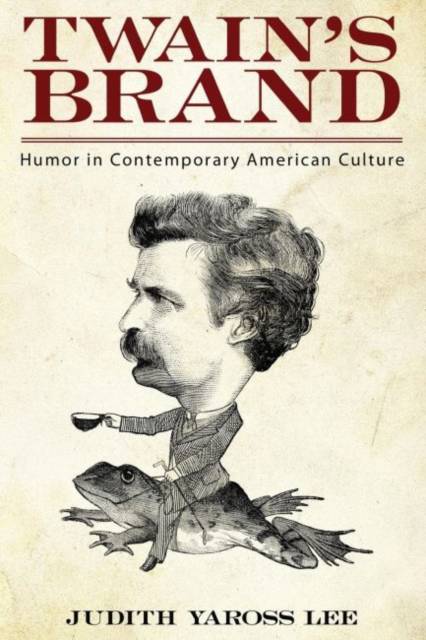
- Afhalen na 1 uur in een winkel met voorraad
- Gratis thuislevering in België vanaf € 30
- Ruim aanbod met 7 miljoen producten
- Afhalen na 1 uur in een winkel met voorraad
- Gratis thuislevering in België vanaf € 30
- Ruim aanbod met 7 miljoen producten
Zoeken
€ 40,95
+ 81 punten
Uitvoering
Omschrijving
A study of what made mark twain a pioneer of American comedy today Samuel L. Clemens lost the 1882 lawsuit declaring his exclusive right to use "Mark Twain" as a commercial trademark, but he succeeded in the marketplace, where synergy among his comic journalism, live performances, authorship, and entrepreneurship made "Mark Twain" the premier national and international brand of American humor in his day. And so it remains in ours, because Mark Twain's humor not only expressed views of self and society well ahead of its time, but also anticipated ways in which humor and culture coalesce in today's postindustrial information economy--the global trade in media, performances, and other forms of intellectual property that began after the Civil War. In Twain's Brand: Humor in Contemporary American Culture, Judith Yaross Lee traces four hallmarks of Twain's humor that are especially significant today. Mark Twain's invention of a stage persona comically conflated with his biographical self lives on in contemporary performances by Garrison Keillor, Margaret Cho, Jerry Seinfeld, and Jon Stewart. The postcolonial critique of Britain that underlies America's nationalist tall tale tradition not only self-destructs in A Connecticut Yankee in King Arthur's Court but also drives the critique of American Exceptionalism in Philip Roth's literary satires. The semiliterate writing that gives Adventures of Huckleberry Finn its "vernacular vision"--wrapping cultural critique in ostensibly innocent transgressions and misunderstandings--has a counterpart in the apparently untutored drawing style and social critique seen in The Simpsons, Lynda Barry's comics, and The Boondocks. And the humor business of recent decades depends on the same brand-name promotion, cross-media synergy, and copyright practices that Clemens pioneered and fought for a century ago. Twain's Brand highlights the modern relationship among humor, commerce, and culture that were first exploited by Mark Twain. Judith Yaross Lee is a professor and director of honors tutorials in the School of Communication Studies at Ohio University. She is the author of Defining "New Yorker" Humor and Garrison Keillor: A Voice of America, both available from University Press of Mississippi.
Specificaties
Betrokkenen
- Auteur(s):
- Uitgeverij:
Inhoud
- Aantal bladzijden:
- 240
- Taal:
- Engels
Eigenschappen
- Productcode (EAN):
- 9781628461763
- Verschijningsdatum:
- 6/08/2014
- Uitvoering:
- Paperback
- Formaat:
- Trade paperback (VS)
- Afmetingen:
- 152 mm x 229 mm
- Gewicht:
- 344 g

Alleen bij Standaard Boekhandel
+ 81 punten op je klantenkaart van Standaard Boekhandel
Beoordelingen
We publiceren alleen reviews die voldoen aan de voorwaarden voor reviews. Bekijk onze voorwaarden voor reviews.








